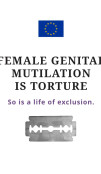AU-EU partnership: working together delivers on health

As we celebrate the 25th anniversary of the AU-EU partnership, this collaboration on health is a concrete case of how multilateralism delivers in tackling shared global health threats and by reinforcing local health systems. Building on a foundation of strong and broader partnership, it reflects a shared commitment to multilateralism and the recognition of a deep interdependence between the two continents.
Listen to an AI-curated podcast episode that discusses how the AU and the EU work together on health here
As in many other areas, the EU is a reliable and important partner to the AU in health, namely via the Africa Centres for Disease Control and Prevention (Africa CDC) and the AUDA-NEPAD, with whom collaboration has expanded over the years. As part of the broader Global Gateway Africa – Europe Investment Package, a number of Team Europe initiatives and common projects are delivering tangible progress on the commitments made under the Joint Vision 2030 agreed by African and European leaders during their last Summit. These cover a whole spectrum of action, including critical areas such as vaccine manufacturing, health security, digital health, and public health institutes. The overall aim is to bolster local resilient health systems and to confront, in a coordinated way, shared threats like pandemics, antimicrobial resistance, access to medicines and even climate-related diseases.
The AU–EU health partnership is a long-standing collaboration built on mutual respect, shared responsibility, and joint investment in health as a public good. There is a strong commitment to support full-fledged African health sovereignty, in order for the continent to respond to current and future public health emergencies. PHAHM and MAV+ are two of the initiatives that are building a robust, sustainable and independent pharmaceutical industry in Africa, further reducing reliance on global supply chains.
PHAHM, the Platform for Harmonized African Health Product Manufacturing, is an Africa CDC strategic framework that supports the manufacturing of vaccines, medicines, diagnostics and medical devices in Africa. MAV+, standing for the Team Europe Initiative on Manufacturing and Access to Vaccines, Medicines, and Health Technologies in Africa, is another cornerstone. Launched in 2021 with a European investment of around 2 billion euros, it involves close work with African bodies at continental, regional and national levels to build resilient health infrastructures capable of withstanding future crises and to revolutionise the manufacturing of health products in Africa. This initiative is empowering African countries to produce safe, affordable health products, reducing their dependency on imports and increasing citizens’ access to quality products. A key achievement has been establishing vaccine production facilities capable of generating 500 million doses annually and cultivating networks to develop African talent in the pharmaceutical sector.
The interdisciplinary One Health approach is key to strengthen pandemic prevention, preparedness, and response and tackle antimicrobial resistance (AMR). The EU is supporting Africa CDC to enhance One Health coordination, knowledge sharing, and delivery aptitudes, as well as, a capacity and partnership-building project to strengthen preparedness, harmonised surveillance, and public health workforce development by the African CDC and the European Centre for Disease Prevention and Control (ECDC). The Africa CDC and the ECDC create valuable long-term opportunities for knowledge transfer, capacity building and continuous networking, namely setting up a future professional exchange programme and through risk-ranking exercises and guidelines that allow Emergency Preparedness counterparts in all African regions to be better prepared for major health threats.

EU
A paramount example of the EU and AU working together was the response to the Mpox outbreak, with shared planning, monitoring and reporting. The EU Health Preparedness and Response Authority (HERA) was the first to respond Africa CDC's request, coordinating the donation of 781,000 vaccine doses from EU and EU member states to the Democratic Republic of Congo (DRC) and other African countries. It was also a case when African and European experts were deployed to support national authorities in the field, as is also happening currently in Sierra Leone. This coordinated response to the Mpox outbreak set a model for global solidarity and cooperation in responding to health security challenges. Following it, in July 2025, Africa CDC and the European Commission launched the Partnership to Accelerate Mpox Testing and Sequencing in Africa (PAMTA), a landmark initiative co-funded under the EU4Health with a €9.4 million grant to Africa CDC and the African Society for Laboratory Medicine (ASLM).
HERA and Africa CDC co-created projects to help track diseases better, focusing on improving lab capacities at national level to quickly identify and respond to health threats, and on using advanced technology to study diseases and drug resistance. The Genome Sequencing-Based Surveillance, known as the “DETECT” project, helps scientists understanding how pathogens evolve and spread. This specific project is part of Africa CDC’s Pathogen Genomics Initiative 2.0, as well as the Team Europe Initiative on Health Security using One Health Approach, and focuses on bolstering genome sequencing-based surveillance to combat antimicrobial resistance and improve outbreak detection. Through training and capacity-building initiatives for laboratory personnel, capabilities across several African nations have been significantly enhanced. This has led to earlier outbreak detection, a fortified response infrastructure and the preparedness of local experts with cutting-edge tools.
These are a few examples of a large-scale collaboration under the AU-EU partnership on health, spanning everything from disease surveillance to digital transformation and from health professionals training to strengthening local manufacturing and public health institutions. By developing local capabilities and enhancing preparedness, the 25 years old AU-EU partnership fundamentally strengthens health security, in Africa and globally. These EU-AU initiatives demonstrate that together, far greater achievements are possible. They exemplify the pivotal role multilateralism plays in addressing global challenges, while delivering concrete local benefits. A healthier world, where cross-continental collaboration truly enriches lives, promotes security, and sustains human development. Our shared values are translated into practical, tangible benefits that extend beyond borders, enhancing health security and unlocking new developmental opportunities for citizens.
AU-EU partnership 25th anniversary
The African Union (AU) and the European Union (EU) launched a year-long celebration marking the 25th anniversary of their enduring and unique partnership, since the first Africa-Europe Summit on 3-4 April 2000 in Cairo. In a looking back exercise we recall key moments over the 25 years of cooperation, organized under four pillars: Prosperity, Peace, People, and Planet. The AU-EU Partnership is committed to building a common future and fostering a prosperous Africa and Europe, with a significant progress in delivering the Global Gateway in Africa - article, X, Instagram, Facebook, flagship projects – made up of EUR 150 billion worth of investments for a strong, inclusive, green and digital Africa. The EU and its member states remain Africa’s first trading partner, first investor, first ODA and humanitarian donor.
The Joint Vision for 2030 agreed by African and European leaders at their last AU-EU Summit in 2022, guides the AU-EU Partnership to be a driving force in promoting our common priorities and shared values. 2025 is another milestone with the African and EU leaders meeting both at the 3rd EU-AU Ministerial (May 21, Brussels) and at the 7th AU-EU Summit (November 24-25, Luanda). Together, AU and EU deliver results on health, youth, and prosperity, as some of the priorities under the AU-EU partnership. Follow with the #AUEU25 on both Unions’ digital platforms:
AUC: www.au.int| Facebook | Twitter | Instagram | YouTube
EU EEAS website / Press Material / YouTube channel / EU Delegation to the AU: Website / X




